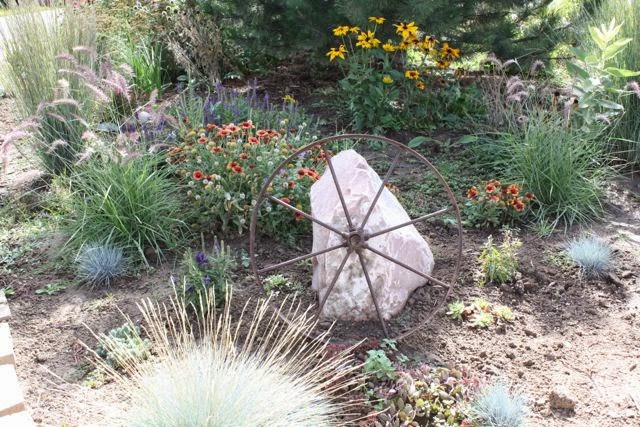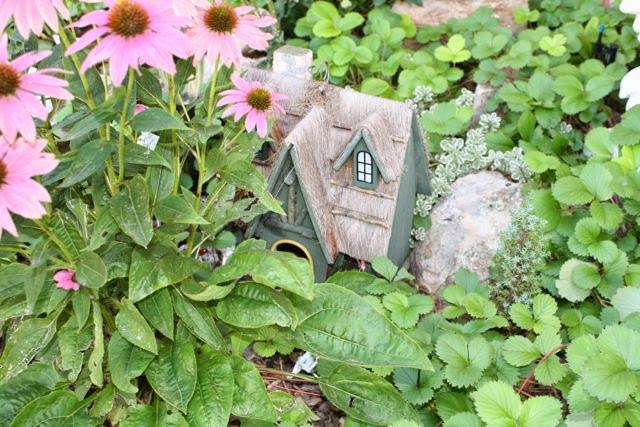I have written before about my childhood chores during the summer. It was always my job to gather the windfall apples from our small farm's 60 year old apple trees to make apple sauce every summer day before I could go ride my horse. Certainly not my favorite thing to do, but the family did love the apple sauce. I never could decide if I liked it best steaming hot freshly reamed or well chilled on breakfast toast. I'd add lots of sugar and cinnamon. It was a messy, hot chore with small, wormy apples that I had to chop and carve and cut around blemishes and worms.
Thus when I found myself at ACE Hardware the other day looking to buy what I called a reamer, I was chuckling to myself. As a child, I swore that I would never make apple sauce when I grew up. But there I was asking the clerk for assistance in finding one. I learned, too, that the contraption isn't a reamer, it is a chinois. It's fancy name doesn't make the chore any more pleasant. I know that I had my mother's, but it is one of those items that has disappeared over the years.

With the apples we picked Sunday still on the patio, I decided that I should do something with them and not let them go to waste. Echos of my parents' harsh lessons linger in my own psyche. The apples don't look very good do they? As a kid not realizing that we were poor, I helped with food preparation and preserving, accepting the work as a way of life. My mother pickled, roasted, stewed, steamed, and canned the food that dad grew. She worked so hard preserving everything from pickling cucumbers and beets to making jellies and jams from wild plums, crab apples, even service berries that she gathered in the mountains. She canned tomatoes by the gallons, making juices and preserves, and butters from tomatoes. She baked green tomato pie to use up green tomatoes. Along with the smells of cooking food and hot steam from the caner, there was that silent whisper in the kitchen: Let nothing go to waste.

I spent the better part of the day hearing that whisper, reflecting and remembering and thinking about how today's homemakers manage their food preparation. I remembered how hard our parents worked to put food on our table that was natural, safe, tasty (for the most part), and healthy. I had remarked to my brother once the Dad either grew our food or hunted it. There was never a question about what was in our food or where it came from. The only pre packaged foods in mamma's kitchen were Betty Crocker Cake mixes, Bisquick, Koolade, and Jell-O. A doctor had told dad way back in the 1950s that commercially grown beef and pork were the cause of his gout, so he provided his family with elk and deer meat. I spent the day making apple sauce from the pathetic apples that we gathered and salsa from the few tomatoes that we salvaged after the frost, appreciating that I was able to store some food for the winter, thankful that I knew how to do it, and amazed that I wanted to.
I had other thoughts, too, as I worked.
I caught the tail end of a documentary on GMOs on a public TV station. Now, I don't want to enter into a discussion on GMO food, but I did spent considerable time thinking about one of the speakers who urged her audience to grow their own food because it would be safer and better than commercially grown food. Grow heirloom varieties, she said. Use no pesticides or commercial fertilizers, she advised. I got caught up in analyzing what she was asking and wondering if she gardened.
Wouldn't be nice if everyone grew their own food? I thought of all of the benefits that we as gardeners enjoy when we grow our own food:
*Home grown fruits and vegetables taste better
*Home grown fruits and vegetables are probably healthier especially if the gardener doesn't use chemicals in the garden or with careful application of chemicals.
*Home grown fruits and vegetables are fresh, tree ripened, vine ripened, picked just before or at their prime
*And there is great satisfaction in growing our own food
*Gardening is fun, noble, spiritual
On the negative side:

*Food grown without some chemical treatment will not be perfect such as the apples that I had to work with today. I had to do a lot cutting around bad spots. These apples were not wormy, but they had been hail damaged and bird pecked and had plenty of rough spots. I know for certain that there would be homemakers grossed out at such produce. As for tomatoes, fortunately we have never had a horned tomato worm infestation. My dad did. His solution was to simply plant one for the worms because they become the beautiful humming bird moth. Nor do we treat for any diseases or vermin in the garden with any short of chemical.
*Growing our own food is hard work. Fun, but hard. The process begins by crawling through gardening magazines and catalogs, tiling the the garden in the spring, planting, weeding, watering, weeding, watering, weeding. . . . Then figuring out what to do with infestations, molds, wilts, black leaves, yellow leaves, turned down leaves, yada, yada, yada.
*Then there is the weather. Drought. Wind. Hail. Heat. And frost at the end of the growing season
when the tomatoes have been slow to ripen and we just need a few more days of sunshine. Or hoping for a wonderful peach crop this season, a late killing freeze wipes out our dreams of fresh peaches from our back yard. Or the robins striping the cherry tree the day before we plan to make the one and only cherry pie from our prized little tree.
*Once we get the crop harvested, then we have to figure out what we will do with it.
Canning is a lot of work, hot, messy, time consuming, even stressful. Will it turn out? Will the lids seal? Will the family like what I have spent hours preparing?
*And then there is the expense. Buying seedlings at the nursery is not cheap. Starting seeds at home seems to be a smart way to save money, but once again seeds and baby plants need care and nurturing and the right growing conditions. And gardeners have to buy compost, manure, hoes, shovels, gardening gloves and hats, rototillers, sun screen, hoses, fertilizers. What have I left out? After harvest: jars, lids, a caner, tongs and the list goes on.
Preparing the apples today wasn't all that bad and I got to have fresh apple sauce for lunch, the house smelled nice, and I put some in the freezer. And there is still a bucket full of apples on the patio that I should do something with.
Daddy would be proud of me. Momma would be smiling. I rested for a while, had some lunch and started in again to make salsa.
At the end of a long day of standing, sweating, and crying (those onions were stout) and reflecting on gardening and food preparation, I thought again wouldn't it be nice if everyone grew their own garden and put up their own food, assuring themselves of providing fresh, pure, nutritious food for their family?

I don't see that happening. Today's family is a busy family. Mom works, Dad works, the kids play soccer, take ballet lessons, play the piano, do homework. Given today's lifestyle, when are families supposed to grow and preserve their own food? Supermarkets have the consumer spoiled providing perfect fresh fruits and vegetables, worm and blemish free shipped in from exotic places like Florida, California, and Columbia(?). How many food DYIers would see the good parts of naturally grown apples, over looking the worm holes, bird bites, and bug nibbles? I am afraid that the documentary's speaker is daydreaming as she encourages her audience to become food independent. Perhaps the closest homemakers can come to that is visit the farmer's markets in their area, to buy locally, buying in enough quantity to can and freeze enough for a long winter. Sorry kids, no soccer today. The apples are ready and we gotta can green beans for the winter before that ballet lesson.


Oh, then there is the mess. What a mess. I didn't have a fancy cook top or dishwasher as a kid or a big kitchen where I could sprawl out or air conditioning. But what delicious memories of working in the small steam filled farmhouse kitchen elbow deep in apple pulp trying to finish my chore so that I go be a kid and ride with the wind.
Not to end a negative note, I do encourage grow your own, pick your own, preserve your own. My go to website is
Pick Your Own. Org where you will learn everything you need to need to know about canning pretty much anything you want. The site is thorough including recipes, tips and hints, do's and don'ts, and equipment, even state by state.
So grow your own on a patio in a pot or hanging basket, on a porch, or in a side garden. Replace your dangling petunias and potato vines in hanging baskets with strawberries. Hide some cucumbers in with your geraniums. Use zucchini as vines in pots instead of expense trailing sweet potato vines. Pick you own food for a fresh salad, a few strawberries on your morning cereal, or some cold refrigerator pickles. Preserve your own by freezing, canning, dehydrating.
Today I have to clean the kitchen and I will start all over. I want to make jalapeno jelly and apple jelly. I'd better get to work.
Have a wonderful week end. I do enjoy your visits and love your comments. Thank you for taking the time to read this very long post.































































